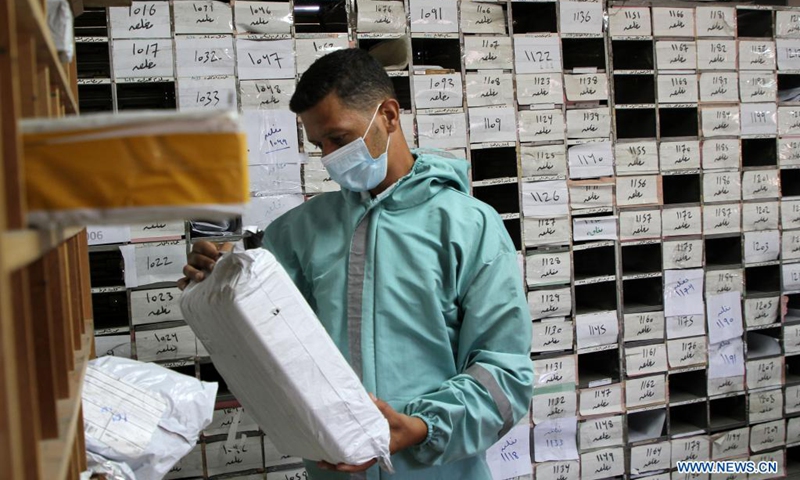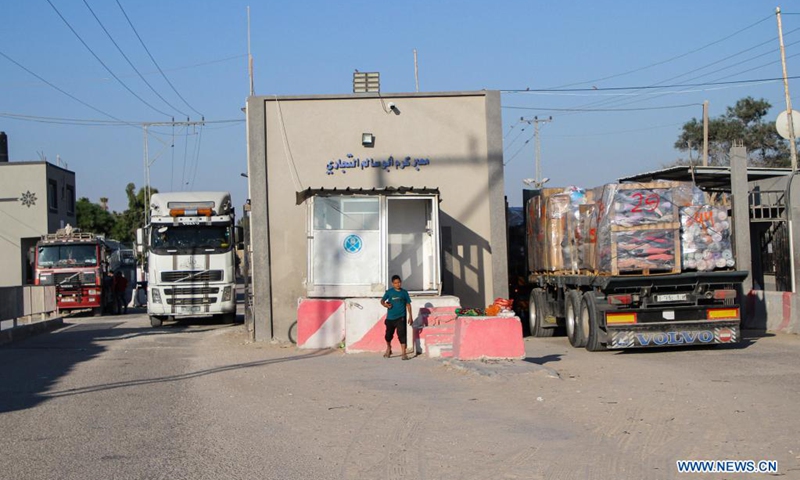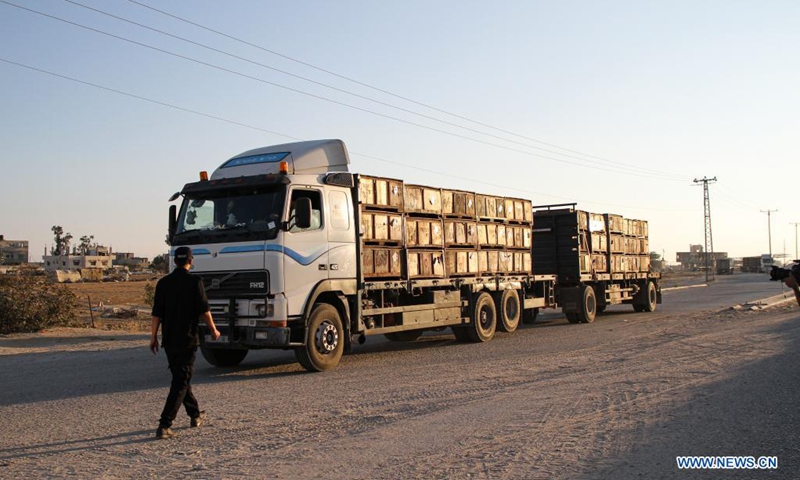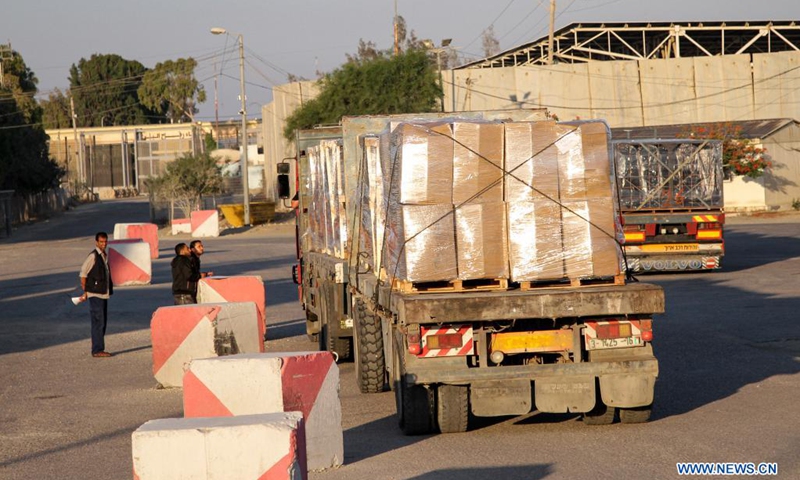
A Palestinian man works at the main Gaza Post Office in Gaza City, on June 22, 2021. For the second day in a row, dozens of trucks loaded with agricultural goods and clothes arrived at the Kerem Shalom commercial crossing in the southern Gaza Strip. These goods from Gaza were allowed to be exported to the West Bank and Israel.(Photo: Xinhua)

Trucks are seen at the Kerem Shalom commercial crossing in the southern Gaza Strip city of Rafah, on June 22, 2021. For the second day in a row, dozens of trucks loaded with agricultural goods and clothes arrived at the Kerem Shalom commercial crossing in the southern Gaza Strip.(Photo: Xinhua)

Trucks arrive at the Kerem Shalom commercial crossing in the southern Gaza Strip city of Rafah, on June 22, 2021. For the second day in a row, dozens of trucks loaded with agricultural goods and clothes arrived at the Kerem Shalom commercial crossing in the southern Gaza Strip.(Photo: Xinhua)

Trucks are seen at the Kerem Shalom commercial crossing in the southern Gaza Strip city of Rafah, on June 22, 2021. For the second day in a row, dozens of trucks loaded with agricultural goods and clothes arrived at the Kerem Shalom commercial crossing in the southern Gaza Strip.(Photo: Xinhua)
For the second day in a row, dozens of trucks loaded with agricultural goods and clothes arrived at the Kerem Shalom commercial crossing in the southern Gaza Strip. These goods from Gaza were allowed to be exported to the West Bank and Israel.
On Monday, the Israeli authorities opened the only commercial crossing with the Hamas-ruled Gaza Strip after a 40-day closure because of the military conflict between the Israeli army and the Palestinian armed factions in Gaza.
Agricultural goods and clothes are now the only items permitted for export, Palestinian officials told Xinhua.
The crossing's partial reopening enabled Ahmed Wadi, a resident of the town of Beit Lahia in the northern Gaza Strip, to breathe a sigh of relief as it meant he could finally return to work.
The 35-year-old father of four earns his living by transporting fruits and vegetables through the crossing to either the West Bank or Israel.
"This crossing is our only source of livelihood. If it is closed or even partially opened, it will negatively affect our lives and those of the families we support," Wadi told Xinhua while standing next to his truck.
"We are unarmed people who have nothing to do with the political or military situation. All we seek is to live in safety and provide for our children," he said.
Wadi is not alone. More than 1,000 Gazans rely on the crossing for survival.
Riyad Yousef, a 52-year-old truck driver from the city of Rafah in the southern Gaza Strip, has been working relying on the crossing for more than 20 years.
"The situation at the crossing is deplorable. Only 200 to 300 trucks are now allowed to pass the crossing. Before the closure, more than 700 trucks crossed it per day," Yousef said.
It is worth noting that the Israeli authorities have also allowed the entry of postal parcels and passports into Gaza, according to Mahmoud al-Far, an official in the Ministry of Communications in Gaza.
Mahmoud Faraj, owner of the Marrakesh Express Mail and General Services Company in Gaza City, said about 3,000 Palestinian passports have arrived in Gaza since Monday.
"This amount is relatively large compared to what we received in normal times that did not exceed 300 passports per day," he said.
"The transfer of passports between Gaza and the West Bank is a humanitarian matter, and it is important that it is kept at bay from the political situation because it will end up affecting Palestinian citizens in the Gaza Strip," Faraj explained.
Other restrictions by Israel remain in place. They include restrictions on the zone for Gazan fishermen, a limit on the number of medical patients allowed to get treatment in Israel or the West Bank, and a ban on raw materials for Gazan industries.
Egypt brokered the cease-fire that went into effect on May 21, ending a round of heaviest fighting between Israel and Hamas since 2014.
